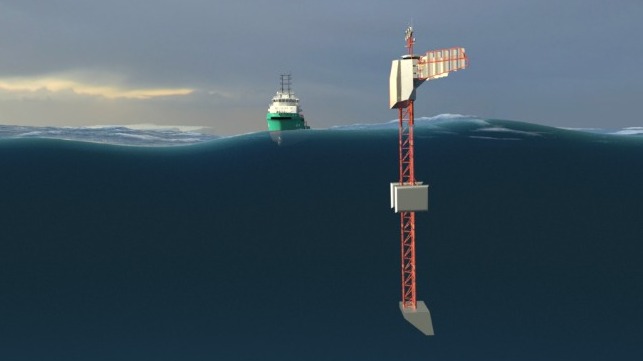Famed Explorer Prepares Two-Year Mission to Study Antarctic Currents

A renowned French explorer made headlines around the world when he became the first man to reach the North Pole alone back in 1986. Now, at the age of 74, the doctor-scientist-explorer Jean-Louis Etienne is going to set another milestone: A two-year mission around Antarctica aboard the Polar Pod, a BV-certified international oceanographic station designed like a spar buoy. The objective is to study the Antarctic Circumpolar Current, a crucial player in the Earth’s climate which contains an immense reserve of marine biodiversity still unknown to mankind.
For exploring the Southern Ocean, a wide array of factors come into play. The high winds of the Roaring 40s, Furious 50s, and Screaming 60s ravage through these waters. The Polar Pod is designed to withstand waves of up to 38 meters (125 feet) as a precaution against the high winds and gigantic swells of this notorious region. Measuring almost 330 feet high and weighing 1,000 tons, it is essentially an offshore platform on a lattice spar structure. The bottom ballast weighs around 150 tons, and the nacelle at the top is made out of aluminum. For handling the force of the violent storms, the outer shell is made out of special steel.
In comparison to a traditional ship, the Polar Pod provides far more comfort. Having a 250-foot draft, the “vertical vessel” provides extreme stability. It is designed for five degrees of heel in the conditions of the Southern Ocean and a vertical movement that does not exceed 10 percent of the height of the waves.
Polar Pod from Sylvain Bergeon on Vimeo.

that matters most
Get the latest maritime news delivered to your inbox daily.
The data collected aboard the vessel will be relayed back to researchers, oceanographers, climatologists, biologists, and scientific institutions from 12 countries.
“Being the trusted certification partner for a project such as Polar Pod is an exciting adventure. This demonstrates our high technical expertise and innovation capabilities while supporting research and finding ways to protect the marine biodiversity,” said Matthieu de Tugny, Executive Vice-President Marine & Offshore at Bureau Veritas."We contribute to shaping a better and more sustainable world.”
